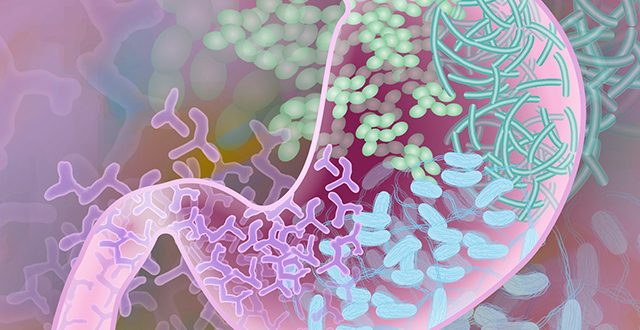- Diseases
- Acoustic Neuroma (14)
- Adrenal Gland Tumor (24)
- Anal Cancer (66)
- Anemia (2)
- Appendix Cancer (16)
- Bile Duct Cancer (28)
- Bladder Cancer (68)
- Brain Metastases (28)
- Brain Tumor (228)
- Breast Cancer (712)
- Breast Implant-Associated Anaplastic Large Cell Lymphoma (2)
- Cancer of Unknown Primary (4)
- Carcinoid Tumor (8)
- Cervical Cancer (154)
- Colon Cancer (164)
- Colorectal Cancer (110)
- Endocrine Tumor (4)
- Esophageal Cancer (42)
- Eye Cancer (36)
- Fallopian Tube Cancer (6)
- Germ Cell Tumor (4)
- Gestational Trophoblastic Disease (2)
- Head and Neck Cancer (6)
- Kidney Cancer (124)
- Leukemia (344)
- Liver Cancer (50)
- Lung Cancer (288)
- Lymphoma (284)
- Mesothelioma (14)
- Metastasis (30)
- Multiple Myeloma (98)
- Myelodysplastic Syndrome (60)
- Myeloproliferative Neoplasm (4)
- Neuroendocrine Tumors (16)
- Oral Cancer (98)
- Ovarian Cancer (172)
- Pancreatic Cancer (166)
- Parathyroid Disease (2)
- Penile Cancer (14)
- Pituitary Tumor (6)
- Prostate Cancer (144)
- Rectal Cancer (58)
- Renal Medullary Carcinoma (6)
- Salivary Gland Cancer (14)
- Sarcoma (234)
- Skin Cancer (294)
- Skull Base Tumors (56)
- Spinal Tumor (12)
- Stomach Cancer (60)
- Testicular Cancer (28)
- Throat Cancer (90)
- Thymoma (6)
- Thyroid Cancer (98)
- Tonsil Cancer (30)
- Uterine Cancer (78)
- Vaginal Cancer (14)
- Vulvar Cancer (18)
- Cancer Topic
- Adolescent and Young Adult Cancer Issues (20)
- Advance Care Planning (10)
- Biostatistics (2)
- Blood Donation (18)
- Bone Health (8)
- COVID-19 (362)
- Cancer Recurrence (120)
- Childhood Cancer Issues (120)
- Clinical Trials (622)
- Complementary Integrative Medicine (22)
- Cytogenetics (2)
- DNA Methylation (4)
- Diagnosis (224)
- Epigenetics (6)
- Fertility (62)
- Follow-up Guidelines (2)
- Health Disparities (14)
- Hereditary Cancer Syndromes (122)
- Immunology (18)
- Li-Fraumeni Syndrome (8)
- Mental Health (116)
- Molecular Diagnostics (8)
- Pain Management (64)
- Palliative Care (8)
- Pathology (10)
- Physical Therapy (18)
- Pregnancy (18)
- Prevention (882)
- Research (384)
- Second Opinion (74)
- Sexuality (16)
- Side Effects (598)
- Sleep Disorders (10)
- Stem Cell Transplantation Cellular Therapy (216)
- Support (404)
- Survivorship (324)
- Symptoms (182)
- Treatment (1764)
A diverse gut bacteria may slow metastatic melanoma
2 minute read | Published July 12, 2017
Medically Reviewed | Last reviewed by an MD Anderson Cancer Center medical professional on July 12, 2017

Researchers at MD Anderson Cancer Center have found that the blend of bacteria in the digestive tract of metastatic melanoma patients is associated with disease progression or delay in patients treated with immunotherapy.
Their study of fecal samples from 105 patients treated with immune checkpoint blockade indicates that certain characteristics of patients’ microbiomes correlate with slower disease progression while other qualities are associated with rapid worsening of the disease. The Immune checkpoint inhibitors used in the study block the activation of PD1, a protein on immune system T cells that halts immune response. The drugs’ effect is to free the immune system to attack tumors.
“Greater diversity of bacteria in the gut microbiome is associated with both a higher response rate to treatment and longer progression-free survival,” said study leader Jennifer Wargo, M.D., associate professor of Surgical Oncology at MD Anderson.
Wargo and colleagues also found that an abundance of specific bacteria is associated with higher response rate and longer progression-free survival.
More than half of those with abundant Faecalibacterium prausnitzii had not reached median progression-free survival, while half of those with low abundance had their disease progress by 242 days. Median progression-free survival is defined at the point in time when half of the patients in the study have their disease progress.
An abundance of Bacteroidales was associated with more rapid disease progression, with patients at high abundance having median PFS of 188 days, while those with lower levels of the bacterium had median PFS of 393 days.
“The microbiome appears to shape a patient’s response to cancer immunotherapy, which opens potential pathways to use it to assess a patient’s fitness for immunotherapy and to manipulate it to improve treatment,” said Wargo, who is also co-leader of the Melanoma Moon Shot™, part of MD Anderson’s Moon Shots Program™.
In collaboration with the Parker Institute for Cancer Immunotherapy (PICI), Wargo’s team is developing the first immunotherapy-microbiome clinical trial, with a goal of launching it later this year.
Read more about Wargo’s study in the MD Anderson Newsroom.

